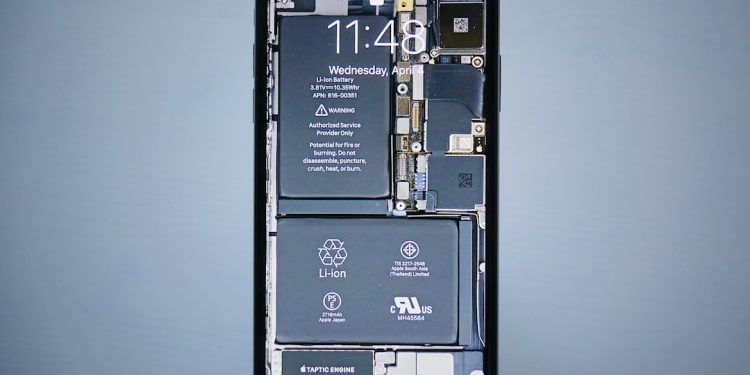No products in the cart.
Harnessing AI for the Future of Battery Technology: Careers in Energy Storage
As AI reshapes battery technology, new career paths in energy storage and recycling are emerging, offering innovative opportunities for young professionals.
Imagine a world where your smartphone charges in seconds, electric cars drive for days on a single charge, and renewable energy sources are seamlessly integrated into our daily lives. This isn’t just a dream; it’s the future that artificial intelligence (AI) is helping to create in battery technology. As we stand at the intersection of innovation and necessity, the demand for skilled professionals in this rapidly evolving field is surging.
Battery technology has long been a cornerstone of our modern existence, powering everything from our gadgets to our cars. But traditional methods of developing and recycling batteries are proving insufficient to meet the growing energy needs of our planet. Here’s where AI steps in, acting as a catalyst for change. By enhancing the efficiency of battery design, testing, and recycling processes, AI is not only revolutionizing how batteries are created and used but also opening up a myriad of career opportunities for young professionals eager to make their mark on the energy landscape.

The integration of AI into battery technology is multifaceted. For instance, AI algorithms can analyze vast amounts of data to predict how different materials will perform in a battery, optimizing the composition for energy density and longevity. This predictive analysis can significantly decrease the time it takes to bring new battery technologies to market, a crucial advantage in a world that is racing toward electrification.
 Artificial Intelligence
Artificial IntelligenceFirms in East Asia Lag in AI Development
Leading firms in East Asia are struggling with AI development, impacting career opportunities in the region.
Moreover, the recycling of batteries—a critical step in ensuring sustainability—is being transformed by AI. Machine learning models can identify and sort various battery components, making the recycling process more efficient and less costly. As we face a global push for greener technologies, professionals skilled in AI and battery recycling will be in high demand, ready to tackle the challenges of waste management and resource recovery.
As we face a global push for greener technologies, professionals skilled in AI and battery recycling will be in high demand, ready to tackle the challenges of waste management and resource recovery.
However, the relationship between AI and battery technology isn’t without its complexities. Critics argue that while AI can streamline processes, it also raises concerns about job displacement. As machines take over certain tasks, the workforce must adapt. This evolution isn’t simply about replacing human roles; it’s about augmenting them. The future will require a workforce that is not only tech-savvy but also skilled in collaboration with AI tools.
Educational institutions are already pivoting to meet this demand. Universities and vocational schools are beginning to offer specialized programs that combine AI training with materials science and engineering. This interdisciplinary approach is essential to prepare the next generation of workers for careers in energy storage and battery technology. By merging knowledge from different fields, students can learn to harness AI as a powerful tool in their future careers.
As we look ahead, the career landscape in battery technology is vast and varied. Opportunities abound in research and development (R&D), where professionals will work to innovate new battery chemistries and improve energy efficiency. There’s also a growing need for experts in quality assurance, who will ensure that new technologies meet safety and performance standards.
 Banking & Finance
Banking & FinanceCredifence Launches Advanced RFID Blocking Card for Enhanced Payment Security
Credifence introduces an innovative RFID blocking card that enhances security for contactless payments, featuring advanced Passive CyberShield technology.
Read More →Furthermore, the rise of electric vehicles (EVs) has created a parallel demand for battery technicians and engineers who can design and maintain these critical components. With the global market for EVs projected to exceed $800 billion by 2027, the need for skilled professionals in this area is expected to skyrocket.
But perhaps one of the most exciting prospects lies in the realm of entrepreneurship. With the burgeoning interest in sustainable technologies, young innovators have a unique opportunity to start their ventures focused on battery innovations and recycling solutions. Startups are already emerging, leveraging AI to create next-generation battery technologies that are not only efficient but also environmentally friendly.
Opportunities abound in research and development (R&D), where professionals will work to innovate new battery chemistries and improve energy efficiency.
In this dynamic landscape, networking and collaboration are vital. Industry conferences and workshops are excellent places for aspiring professionals to connect with established experts, learn about the latest advancements, and discover potential job opportunities. Many organizations also offer mentorship programs designed to guide young talent as they navigate the complexities of this rapidly changing field.
 Business
BusinessUrban Agriculture: Innovations Reshaping City Landscapes
Urban agriculture is evolving with rooftop and vertical farms. Discover innovations redefining food production in cities.
Read More →In conclusion, the future of battery technology, powered by AI, promises not just innovation but the creation of meaningful careers that can help tackle some of our most pressing energy challenges. As the world shifts towards sustainable practices, those who are prepared to embrace the changes will find themselves at the forefront of a new energy revolution.











